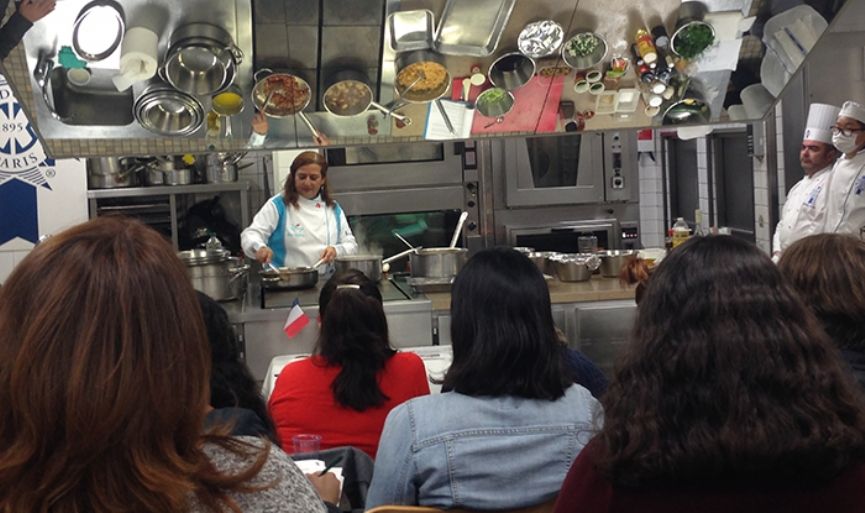
Its possible to cook with fruit and vegetable peels and leftovers
Salom writer, chef and researcher Sibel Cuniman Pinto and her husband Henri Pinto launched an important social responsibility project. With the mission to reduce food waste which is a major global issue, the Pintos founded Action Kashkarikas©. Action Kashkarikas©s goals are to teach people to cook healthy and presentable food with fruit and vegetable peels, leftovers and low-cost local ingredients as well as to share best practices and raise consumer awareness. We talked with Sibel Pinto about this unique project.
You’ve founded an entity with the goal to reduce/ prevent food waste. How serious is the food waste issue?
We are drawing attention to a very big threat which will have a significant impact on our present, our future and our children’s future. We are talking about an increasingly urgent matter that affects the whole world.
According to World Food and Agriculture Organization, one third of the amount of food produced for people in the world is going to waste. This is approximately 1.3 billion tons of food waste.
Let me give you another striking information: In the world, there is enough food being produced for every men, women and children, but every night, 795 million people go to bed, hungry! While there are millions of people battling hunger, there are people take the value of the things nature offers them for granted and waste them. I tell those people “have a heart!”. Could there be a bigger drama? By 2050, the world’s population will increase by 2 billion. Think about those people’s nutrition needs. Increasing production is not the only solution. The most effective strategy to deal with leftover food is to limit and reduce the amount. Food waste is not only an ethical, social or economic problem, but it is also a global problem since it is consuming limited natural sources, unconsciously.
While majority of the waste are consumer and household wastes, 37 percent is due to restaurants. We, the chefs, can reduce the waste focusing on using the ingredients more creatively and effectively.
Can you tell us about Action Kashkarikas?
Cooking nutritious food doesn’t always require using expensive and/or premium ingredients. Our mission at Action Kashkarikas© project is to teach people to cook healthy and presentable food with fruit and vegetable peels, leftovers and low-cost local ingredients as well as to share best practices and raise consumer awareness. Zucchini peels, overripe tomatoes, beet stalks, carrot leaves, horse radish leaves, water melon or banana peels, stale bread…None of these are garbage. To accomplish our mission, we will work together with schools, universities, restaurants, associations, kitchen crews and with consumers, directly. We will organize seminars, workshops and charity events. Over the course of our project, we will be demonstrating sample recipes from our Turkish, Sephardic and Mediterranean cuisine repertoire. We will demonstrate all the recipes we have been meticulously working on over the past year. We will go to every event we are invited to. The collected donations will be regarded as part of our social responsibility project and will be transferred to international institutions and foundations fighting hunger and poverty. We invite everyone who wants to cooperate with us to support our cause.
What kind of events are you planning as part of the project?
Action Kashkarikas© is launching as an international social responsibility project. We aim to execute this project on an educational platform, make it scientific and raise awareness by passing information onto younger generations.
We’ve received our first invite from Mexico. World famous Mexican chef Jose Bossuet Martinez is opening his restaurant’s doors to us. At end of this year, we will promote our project and cuisine at his restaurant. We are still engaged in talks with USA, Canada, Latin America and Asia. As with all disciplines of art, food, cuisine and gastronomy in general brings together people on a common ground. However, it needs more effort. For me fighting hunger and accomplishing a sustainable and ecological goal for the women and children through this project is very important. It is a part of my life philosophy.
How can Turkey benefit from your project?
We are in talks with certain institutions in Turkey. Okan University is very much interested in our project. In the first quarter of 2017, we are planning to launch the same programme, in Turkey. We will organize seminars, workshops and charity events.
We hope to find substantial corporate support. We will be contributing in the best way to promote Turkish Cuisine on international platforms. After all, I will be going to the events I’m invited to as a Turkish chef and lecturer. The project also has a Sephardic cuisine leg. I expect Turkish Jewish Community and Istanbul Sephardic Center’s support in promoting the project and helping us get in touch with necessary contacts. Could there be any other activity as good as this? Promoting and supporting our cultural legacy.
Related Newsss ss












